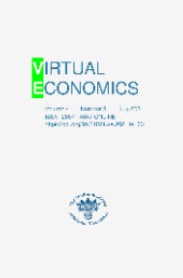Technological Unemployment in the Perspective of Industry 4.0
Technological Unemployment in the Perspective of Industry 4.0
Author(s): Aleksandra KuziorSubject(s): Labor relations, Higher Education , Human Resources in Economy, ICT Information and Communications Technologies, Socio-Economic Research, Pedagogy
Published by: The London Academy of Science and Business
Keywords: Industry 4.0; technological unemployment; structural unemployment; education; competences of the future;
Summary/Abstract: The article concerns the problem of technological unemployment in the perspective of industry 4.0 development. The purpose of the article is to indicate the positive and negative effects of industry 4.0 development and to define the ways of programming education as a way to counteract the negative effects of industry 4.0 development. The author emphasizes the need for an appropriate education curriculum, aimed at acquiring both professional and engineering competences as well as humanistic, ethical and social competences at the same time. Technological unemployment is defined as a temporary, short-term phenomenon, lasting until human capital is shifted to other applications. The lack of adequate education, including lifelong learning, creates a risk of transition from technological unemployment to structural unemployment, which is much more dangerous for economic and social reasons. The article, therefore, contains an analysis of the labor market in terms of the demand for specific competences in the perspective of industry 4.0 development and forecasts of the demand for competences of the future. There is no doubt that the development of industry 4.0 requires specialized competences combining the skills of an IT specialist and an automation / robotics specialist who has skills in the field of cyber-physical systems integration, operation of advanced production management systems and complex production data analysis systems as well as the application of artificial intelligence algorithms in the production space. At the same time, however, specialists with high communication, interpersonal and social competences will be sought, hence there is a need for appropriate education curriculum.
Journal: Virtual Economics
- Issue Year: 5/2022
- Issue No: 1
- Page Range: 7-23
- Page Count: 17
- Language: English

